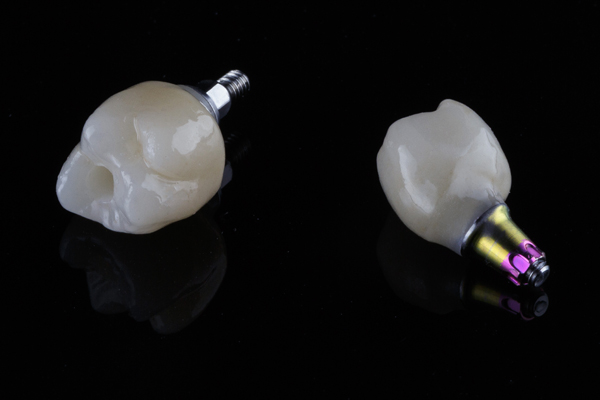Signs and Symptoms of Oral Cancer

Oral cancer is a serious disease that requires intensive treatment and care. This condition can affect any portion of the mouth, including the tonsils and salivary glands. Treatment for the disease includes surgery and may also involve radiation or chemotherapy.
It is important for people to understand the risk factors and what can cause this condition. If you believe you have oral cancer or are prone to getting it, you should speak with your family dentist and get the help and advice you need. Get as much information as you can about battling this disease and improving the way you feel and look.
Overview
Oral cancer is characterized by lesions and tumors on the gums or other areas in the region. These can cause soreness and intense pain, especially while eating. People of all ages can get this disease, though it is more common in people over the age of 55. The general dentistry professional or doctor will recommend treatment based on the person’s overall health. In some cases, treatments will be combined.
Who is at risk?
Tobacco use is one of the biggest factors in oral cancer. People who smoke or use chewing tobacco are much more likely to develop the disease than those who do not. Frequent sun exposure to the lips or mouth can also heighten a person’s risk. Some diets, especially those high in red meat or processed foods, can make a person more prone to this condition. Other risk factors include contact with materials such as asbestos.
Signs and symptoms of oral cancer
There are many clues that a person has cancer of the mouth. People at risk should pay close attention to these. Red and white patches on the lining of the mouth or tongue are one of the major signs.
Another common symptom of the disease is swelling that does not go down, along with persistent mouth ulcers. Many people with the disease also feel jaw pain or pain while swallowing. A person may even have loose teeth.
Treatment
Medical professionals can treat the cancer, especially if the patient starts therapy and procedures early. Removing the tumors is one of the priorities. In some cases, the doctor may have to remove parts of the tongue or jawbone. High-beam radiation therapy is a common way to kill the cancer. If the cancer is prevalent throughout the mouth, the doctor may recommend chemotherapy, especially if there is a good chance the cancer will return. Some doctors may see fit to combine these treatments, depending on the seriousness of the condition.
Be aware
Fortunately, there are steps you can take to minimize the risks of getting oral cancer. If you refrain from tobacco, your chances are much lower. Still, if you contract the disease, you can speak to your doctor or family dentist about measures to regain your oral health and overall well-being. Understand the risks, symptoms and treatments of this condition, so you can be prepared to do what is necessary. Call your doctor today if you believe you may have this cancer.
Request an appointment here: https://www.leedentistryoxford.com or call Lee Family and Cosmetic Dentistry at (662) 546-1143 for an appointment in our Oxford office.
Check out what others are saying about our services on Yelp: Read our Yelp reviews.
Recent Posts
Maintaining good oral hygiene is an essential part of overall health and well-being. It can prevent issues like tooth decay and gum disease. A general dentist can help educate patients about properly caring for their teeth, treating oral health issues, and more. Here are some practical tips to help you achieve a bright and healthy…
Dental implants are an effective and modern way to go about replacing missing teeth. If you are missing a tooth, you are not alone in your predicament; most people lose one or more of their permanent teeth over the course of their lives. People lose teeth due to trauma to the face, aging, or oral…
Regular visits with a trusted dental professional are essential in keeping your teeth and gums healthy in the long run. A preventive dentist can help you maintain good oral health. By focusing on regular dental care and proactive treatments, you can prevent the need for extensive treatments in the future. Regular visits to a preventive…
Choosing a general dentist is an important and personal decision. This dental professional plays a significant role in helping you maintain your oral and overall health. Finding the right dentist for you can make all the difference in keeping your teeth and gums healthy. With so many options available, it can be overwhelming to make…


